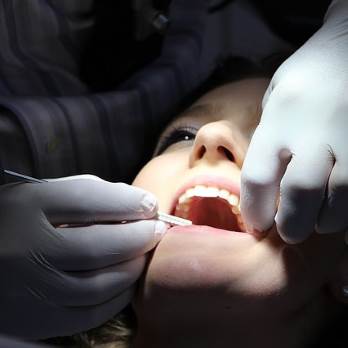Pensioner Dental Care Options and Support in the UK
Dental care for pensioners often focuses on affordability and accessibility. Common needs include dentures, implants, and regular checkups. Many programs and insurance plans aim to reduce costs while supporting oral health in later years. Read to learn more about dental care for pensioners.

What Dental Care Options Are Available for Pensioners?
Pensioners in the UK have several dental care pathways available, each with distinct characteristics and eligibility requirements. NHS dental treatment remains the primary option for many older adults, offering subsidised care through registered dental practices. Private dental care provides additional flexibility and treatment options, though at higher costs. Community dental services specifically cater to patients with special needs or mobility issues, while dental hospitals offer specialist treatments and training programmes.
Many pensioners find that their dental needs change significantly with age, requiring different approaches to care. Regular check-ups become crucial for detecting issues early, while preventive treatments help maintain oral health and reduce the need for complex procedures later.
Understanding Pensioner Dental Care Costs and Financial Support
NHS dental charges are structured into three bands, with Band 1 covering examinations and preventive care, Band 2 including fillings and extractions, and Band 3 encompassing complex treatments like crowns and dentures. Pensioners receiving certain benefits may qualify for free NHS dental treatment, including those on Pension Credit, Income Support, or Universal Credit.
| Treatment Type | NHS Cost Band | Approximate Cost | Private Cost Range |
|---|---|---|---|
| Check-up and cleaning | Band 1 | £25.80 | £40-£80 |
| Fillings and extractions | Band 2 | £70.70 | £80-£300 |
| Crowns and dentures | Band 3 | £306.80 | £300-£1,500+ |
Prices, rates, or cost estimates mentioned in this article are based on the latest available information but may change over time. Independent research is advised before making financial decisions.
Private dental insurance can help spread costs, though many policies have waiting periods and annual limits. Some pensioners opt for dental payment plans offered by private practices, which provide budgeting flexibility for ongoing care.
How to Access Dental Care Services in Your Local Area
Finding appropriate dental care services requires understanding local availability and registration processes. NHS dental practices accepting new patients can be located through the NHS website or by contacting local clinical commissioning groups. Many areas experience shortages of NHS dental places, making early registration important.
Community dental services operate in most regions, providing care for patients who cannot access traditional dental practices due to disability, anxiety, or complex medical conditions. These services often offer domiciliary care for housebound patients, bringing dental treatment directly to care homes or private residences.
Mobile dental units serve rural areas and communities with limited access to fixed practices. Priority dental services provide urgent care for dental emergencies, though availability varies significantly between regions.
Essential Elements of a Comprehensive Pensioner Dental Care Guide
A thorough approach to pensioner dental care encompasses both treatment and prevention strategies. Regular dental examinations help identify problems before they become painful or expensive to treat. Professional cleaning removes plaque and tartar that daily brushing cannot eliminate, while fluoride treatments strengthen tooth enamel.
Home care routines should adapt to changing needs and abilities. Electric toothbrushes can be easier to use for those with arthritis or limited dexterity. Interdental cleaning remains crucial, with alternatives like water flossers offering options for those who struggle with traditional floss.
Medication effects on oral health deserve special attention, as many common medications reduce saliva production or affect gum health. Discussing these impacts with both medical and dental professionals ensures coordinated care approaches.
Managing Common Dental Issues in Later Life
Age-related dental concerns often require specific management strategies. Gum disease becomes more prevalent and can progress rapidly without proper care. Tooth sensitivity may increase due to receding gums or worn enamel, requiring specialised toothpaste or professional treatments.
Dry mouth affects many older adults, particularly those taking multiple medications. This condition increases cavity risk and can make eating and speaking uncomfortable. Artificial saliva products, prescription medications, or lifestyle adjustments can provide relief.
Denture care presents ongoing challenges for many pensioners. Proper fitting, regular adjustments, and meticulous cleaning prevent sore spots, infections, and social embarrassment. Implant-supported dentures offer improved stability and comfort, though require significant investment.
Maintaining good oral health throughout retirement years requires proactive planning, regular professional care, and adaptation to changing needs. Understanding available options, financial support mechanisms, and local services enables pensioners to access appropriate dental care. Early intervention, preventive strategies, and coordinated care with medical providers help preserve oral health and overall quality of life. Regular dental check-ups, proper home care routines, and prompt attention to problems ensure that dental issues do not compromise health, nutrition, or social confidence in later years.
This article is for informational purposes only and should not be considered medical advice. Please consult a qualified healthcare professional for personalized guidance and treatment.




